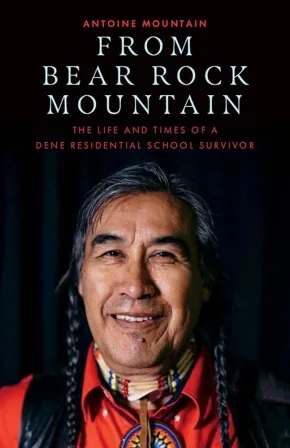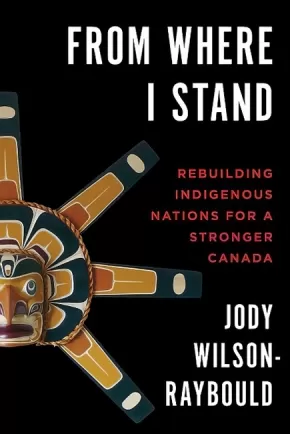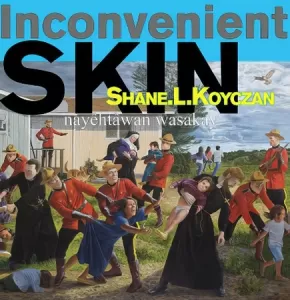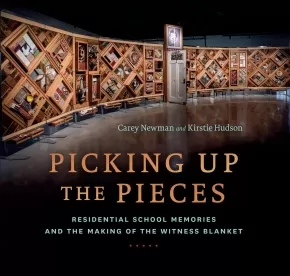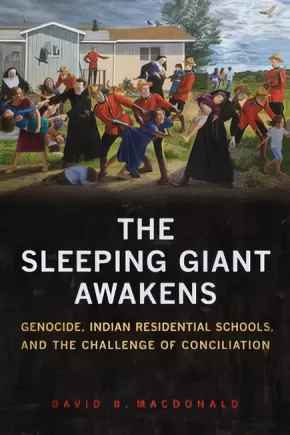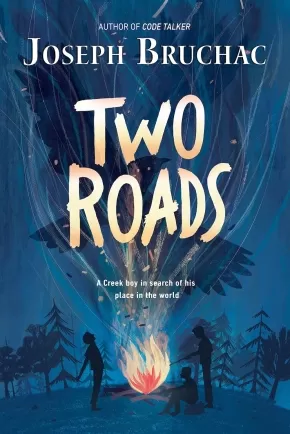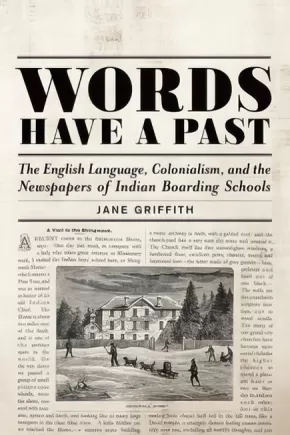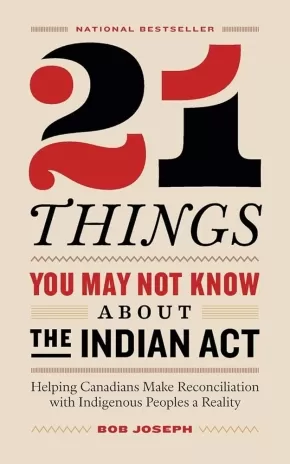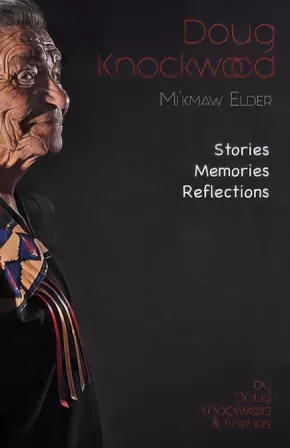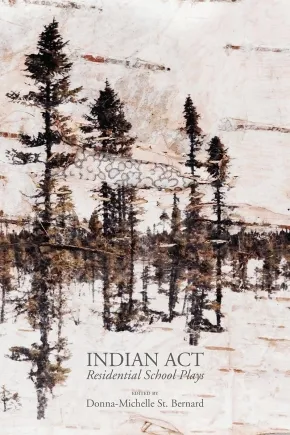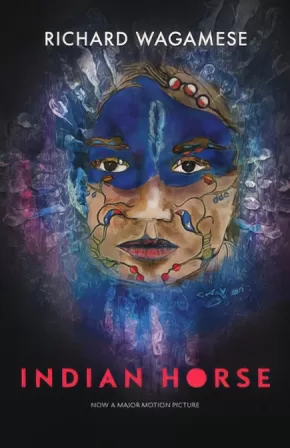
Residential Schools / Reconciliation
61
-
75
of
116 Results;
Sort By
Go To
of 8
To deepen and support your understanding of what the Indian Residential School experience was and its impact on Canada please download this document, They Came For the Children:
Click here: They Came For the Children
Project of Heart” is an inquiry based, hands-on, collaborative, inter-generational, artistic journey of seeking truth about the history of Indigenous people in Canada. Its purpose is to:
Examine the history and legacy of Indian Residential Schools in Canada and to seek the truth about that history, leading to the acknowledgement of the extent of loss to former students, their families and communities
Commemorate the lives of the thousands of Indigenous children who died as a result of the residential school experience.
Call Canadians to action, through social justice endeavors, to change our present and future history collectively
Click here to visit the website: Project Of Heart
Pathways of Reconciliation: Indigenous and Settler Approaches to Implementing the TRC's Calls to Action
$27.95
Editors:
Format:
Paperback
Text Content Territories:
Indigenous Canadian;
ISBN / Barcode: 9780887558542
Synopsis:
Synopsis:
Since the Truth and Reconciliation Commission released its Calls to Action in June 2015, governments, churches, non-profit, professional and community organizations, corporations, schools and universities, clubs and individuals have asked: “How can I/we participate in reconciliation?”
Recognizing that reconciliation is not only an ultimate goal, but a decolonizing process of journeying in ways that embody everyday acts of resistance, resurgence, and solidarity, coupled with renewed commitments to justice, dialogue, and relationship-building, Pathways of Reconciliation helps readers find their way forward.
The essays in Pathways of Reconciliation address the themes of reframing, learning and healing, researching, and living. They engage with different approaches to reconciliation (within a variety of reconciliation frameworks, either explicit or implicit) and illustrate the complexities of the reconciliation process itself. They canvass multiple and varied pathways of reconciliation, from Indigenous and non-Indigenous perspectives, reflecting a diversity of approaches to the mandate given to all Canadians by the TRC with its Calls to Action.
Together the authors — academics, practitioners, students and ordinary citizens — demonstrate the importance of trying and learning from new and creative approaches to thinking about and practicing reconciliation and reflect on what they have learned from their attempts (both successful and less successful) in the process.
Reviews
“Alerts Canadians to what must be done if we are to seriously embrace the goal of decolonizing relations with Indigenous peoples." – Peter Russell, Professor Emeritus, Department of Political Science, University of Toronto
Educator & Series Information
Table of Contents
Introduction
Ch. 1—Paved with Comfortable Intentions: Moving Beyond Liberal Multiculturalism and Civil Rights Frames on the Road to Transformative Reconciliation
Ch. 2—Perceptions on Truth and Reconciliation: Lessons from Gacaca in Post-Genocide Rwanda
Ch. 3—Monitoring That Reconciles: Reflecting on the TRC’s Call for a National Council for Reconciliation
Ch. 4—A Move to Distract: Mobilizing Truth and Reconciliation in Settler Colonial States
Ch. 5—Teaching Truth Before Reconciliation
Ch. 6—“The Honour of Righting a Wrong:” Circles for Reconciliation
Ch. 7—What Does Reconciliation Mean to Newcomers Post-TRC?
Ch. 8—Healing from Residential School Experiences: Support Workers and Elders on Healing and the Role of Mental Health Professionals
Ch. 9—Learning and reconciliation for the collaborative governance of forestland in northwestern Ontario, Canada
Ch. 10—Bending to the Prevailing Wind: How Apology Repetition Helps Speakers and Hearers Walk Together
Ch. 11—How do I reconcile Child and Family Services’ practice of cultural genocide with my own practice as a CFS social worker?
Ch. 12—Repatriation, Reconciliation, and Refiguring Relationships. A Case study of the return of children’s artwork from the Alberni Indian Residential School to Survivors and their families
Other contributors to this work include: Peter Bush, Tracey Carr, Brian Chartier, Mary Anne Clarke, Ko’ona Cochrane, Aimée Craft, Raymond F. Currie, Rachel (Yacaa?ał) George, Erica Jurgens, Régine Uwibereyeho King, Sheryl Lightfoot, David B. MacDonald, Benjamin Maiangwa, Cody O’Neil, Paulette Regan, Cathy Rocke, John Sinclair, Andrea Walsh, Melanie Zurba
This book is part of the Perceptions on Truth and Reconciliation series.
Additional Information
336 pages | 6.00" x 9.00"
Reflections from Them Days: A Residential School Memoir from Nunatsiavut
$12.95
Artists:
Editors:
Format:
Paperback
Text Content Territories:
Indigenous Canadian; Inuit;
ISBN / Barcode: 9781774502075
Synopsis:
Synopsis:
When Nellie Winters was 11 years old, she was sent to attend the Nain Boarding School, a residential school 400 kilometres from her home. In this memoir, she recalls life before residential school, her experiences at the school, and what it was like to come home.
Accompanied by the author’s original illustrations, this moving, often funny memoir sheds light on the experiences of Inuit residential school survivors in Labrador.
Educator & Series Information
Recommended for ages 11-14.
This book is recommended in the Canadian Indigenous Books for Schools 2020/2021 resource list for grades 5 to 7 for English Language Arts and Social Studies.
This book is part of the Qinuisaarniq (“resiliency”) program. This is a program created to educate Nunavummiut about the history and impacts of residential schools, policies of assimilation, and other colonial acts that have affected the Canadian Arctic.
Each resource has been carefully written and reviewed to include level-appropriate opportunities for students to learn about colonial acts and policies that have affected Inuit. These acts and policies created long-lasting impacts on Inuit individuals and communities, which are still being felt today.
The resources in this program include personal interviews, testimony, and writing; non-fiction informational resources; and information about traditional Inuit practices.
Additional Information
26 pages | 9.00" x 7.00" | Transcribed and edited by Erica Oberndorfer
Children of God
$15.95
Format:
Paperback
Text Content Territories:
Indigenous Canadian; First Nations; Anishinaabeg; Oji-Cree;
ISBN / Barcode: 9781927922385
Synopsis:
Synopsis:
Children of God is a powerful musical about an Oji-Cree family whose children were taken away to a residential school in Northern Ontario. The play tells the story of one family: Tommy and Julia, who are trying to survive in the harsh environment of a religious school, and their mother, Rita, who never stops trying to get them back. The impact of this experience on the lives of them all is profound and devastating, yet the story moves toward redemption.
Children of God offers a thrilling blend of ancient traditions and contemporary realities, celebrating resilience and the power of the Indigenous cultural spirit.
Reviews
"Children of God is must-see theatre for Canadians."—Globe and Mail
"Powerful and profound...This is theatre that resonates on a deep emotional level."—Ottawa Citizen
"A significant success...beautiful and very powerful."—Vancouver Sun
Educator Information
A musical by Corey Payette. Contains references to sexual and physical abuse, as well as to trauma and suicide.
Recommended in the Canadian Indigenous Books for Schools 2019-2020 resource list as being useful for students in grades 10-12 for these subjects: Acting, Drama, English Language Arts, Social Studies.
Additional lnformation
80 pages | 5.50" x 8.60"
From Bear Rock Mountain: The Life and Times of a Dene Residential School Survivor
$30.00
Format:
Hardcover
Text Content Territories:
Indigenous Canadian; First Nations; Dene;
ISBN / Barcode: 9781927366806
Synopsis:
Synopsis:
In this poetic, poignant memoir, Dene artist and social activist Antoine Mountain paints an unforgettable picture of his journey from residential school to art school—and his path to healing.
In 1949, Antoine Mountain was born on the land near Radelie Koe, Fort Good Hope, Northwest Territories. At the tender age of seven, he was stolen away from his home and sent to a residential school—run by the Roman Catholic Church in collusion with the Government of Canada—three hundred kilometres away. Over the next twelve years, the three residential schools Mountain was forced to attend systematically worked to erase his language and culture, the very roots of his identity.
While reconnecting to that which had been taken from him, he had a disturbing and painful revelation of the bitter depths of colonialism and its legacy of cultural genocide. Canada has its own holocaust, Mountain argues.
As a celebrated artist and social activist today, Mountain shares this moving, personal story of healing and the reclamation of his Dene identity.
Educator Information
Recommended in the Canadian Indigenous Books for Schools 2019-2020 resource list as being useful for grades 9 to 12 in the following subject areas: English Language Arts, Social Studies.
Included in this story are personal stories of residential school and addiction.
Additional Information
272 pages | 5.50" x 8.50"
From Where I Stand: Rebuilding Indigenous Nations for a Stronger Canada
$24.95
Format:
Paperback
Text Content Territories:
Indigenous Canadian;
Grade Levels: 12; University/College;
ISBN / Barcode: 9780774880534
Synopsis:
Synopsis:
An Indigenous leader who has dedicated her life to Indigenous Rights, Jody Wilson-Raybould has represented both First Nations and the Crown at the highest levels. And she is not afraid to give Canadians what they need most – straight talk on what has to be done to deconstruct the colonial legacy and achieve true reconciliation in Canada.
In this powerful book, drawn from Wilson-Raybould’s speeches and other writings, she urges us all – governments, Indigenous Nations, everyone – to build upon the momentum already gained in the reconciliation process or risk hard-won progress being lost. The choice is stark: support Indigenous-led initiatives for Nation rebuilding or revert to governments just managing “the problem.” Frank and impassioned, she also argues that true reconciliation will never occur so long as governments deny Indigenous Peoples their rights and the Indian Act continues to exist. Until then, we’ll be stuck in the status quo – mired in conflicts and expensive court cases that do nothing to improve people’s lives or heal the country.
The good news is that Indigenous Nations already have the solutions. Now it is time to act and build a shared future based on the foundations of trust, cooperation, good governance, and recognition. Removing the barriers that are keeping these solutions from being put into effect will not only empower Indigenous Peoples – it will enrich all Canadians and make Canada stronger.
From Where I Stand is indispensable reading for anyone who wants to dig deeper into the reconciliation process and know what they can do to make a difference, from engaged citizens and students to leaders and policy-makers, educators and academics, and lawyers and consultants.
Reviews
"From Where I Stand is a must-read book for all Canadians. Puglaas shares a clear understanding of where we have come from, the issues we must address, and the pathways to a transformed future. Having witnessed her remarkable courage and capacity as Canada’s attorney general and her determination to do what is right without succumbing to unrelenting political pressure, Puglaas stands tall among Canadians as a person for whom truth, thoughtfulness, and principle are not mere words – but values to sustain a different kind of policy and politics." - Mary Ellen Turpel-Lafond (Aki-Kwe), Professor of Law, Allard Law School UBC, and Director of the Residential School History and Dialogue Centre
"Jody Wilson-Raybould's quest for justice has long driven her work. I first saw this when she was a law student and this commitment to justice has only been deepened by subsequent public service. Her unwavering commitment to reconciliation, balance, and good governance springs off every page of this book." - John Borrows, Canada Research Chair in Indigenous Law, University of Victoria Law School
Educator Information
Table of Contents
Foreword
Introduction
Moving through the Postcolonial Door
We Truly Have Come a Long Way ...
Idle No More and Recapturing the Spirit and Intent of the Two Row Wampum
On the Parallels, and Differences, between Canada and South Africa
Our Shared Histories and the Path of Reconciliation
Rights and Recognition
Self-Determination and the Inherent Right of Self-Government
Translating Hard-Fought-For Rights into Practical and Meaningful Benefits
UNDRIP Is the Start Not the Finishing Line
Defining the Path of Reconciliation through Section 35
Indigenous Rights Are Human Rights
Implementing UNDRIP
Governance in the Post-Indian Act World
Toppling the Indian Act Tree
First Nations Jurisdiction over Citizenship
Holding and Managing Our Lands
On Accountability and Transparency
Developing a New Fiscal Relationship
The Governance Toolkit and Building on Our Success
Building Business Relationships and the Duty to Consult
Economic Development Depends on Self-Government
First Nations Are Not a Box to Tick Off
Who Owns and Is Responsible for the Water?
On Certainty and Why It’s Elusive
Restoring Balance, Correcting Injustices, and Remaining Vigilant
A Litmus Test for Reconciliation Is the Status of Women
Preventing First Contacts with the Criminal Justice System
On Sticking Our Necks Out
On Obstruction, Denial, and Canada’s Failure to Uphold the Rule of Law
Each of Us, In Our Own Way, Is a Hiligaxste’
Acknowledgments
A Note on Terminology and the Speeches
Index
Additional Information
264 pages | 6.00" x 9.00"
Inconvenient Skin / nayêhtâwan wasakay
$29.95
Artists:
Format:
Hardcover
Text Content Territories:
Indigenous Canadian;
ISBN / Barcode: 9781926886510
Synopsis:
Synopsis:
Inconvenient Skin challenges how reconciliation has become a contested buzzword filled with promises and good intentions but rarely any meaningful follow-through. While Canada's history is filled with darkness, these poems aim to unpack that history to clean the wounds so the nation can finally heal. Powerful and thought-provoking, this collection will draw you in and make you reconsider Canada's colonial legacy. The cover features the art of Kent Monkman, and the interior features work by Joseph Sanchez, a member of the Indian Group of Seven.
Written in English and Cree.
Educator Information
This collection of poems features Shane Koyczan's well-known poem, "Inconvenient Skin," delivered in a dual-language format of English and Cree and paired with illustrations, artwork, and photography.
Recommended in the Canadian Indigenous Books for Schools 2019-2020 resource list as being useful for grades 11 and 12 for these subjects: Art Education, English Language Arts.
This poem talks about sexual assault, genocide, and violence. Some of the artwork shows violence and nudity. This could be triggering for some readers.
Additional Information
80 pages | 8.50" x 8.50" | Colour Illustrations
Indigenous Relations: Insights, Tips & Suggestions to Make Reconciliation a Reality
$19.95
Format:
Paperback
Text Content Territories:
Indigenous Canadian; First Nations; Inuit; Métis;
ISBN / Barcode: 9781989025642
Synopsis:
Synopsis:
Indigenous Relations: Your Guide to Working Effectively with First Nations, Métis, and Inuit.
A timely sequel to the bestselling 21 Things You May Not Know About the Indian Act - and an invaluable guide for anyone seeking to work more effectively with Indigenous Peoples.
We are all treaty people. But what are the everyday impacts of treaties, and how can we effectively work toward reconciliation if we're worried our words and actions will unintentionally cause harm?
Hereditary chief and leading Indigenous relations trainer Bob Joseph is your guide to respecting cultural differences and improving your personal relationships and business interactions with Indigenous Peoples. Practical and inclusive, Indigenous Relations interprets the difference between hereditary and elected leadership, and why it matters; explains the intricacies of Aboriginal Rights and Title, and the treaty process; and demonstrates the lasting impact of the Indian Act, including the barriers that Indigenous communities face and the truth behind common myths and stereotypes perpetuated since Confederation.
Indigenous Relations equips you with the necessary knowledge to respectfully avoid missteps in your work and daily life, and offers an eight-part process to help business and government work more effectively with Indigenous Peoples - benefitting workplace culture as well as the bottom line. Indigenous Relations is an invaluable tool for anyone who wants to improve their cultural competency and undo the legacy of the Indian Act.
Educator Information
Recommended in the Canadian Indigenous Books for Schools 2020/2021 resource list for grades 11 and 12 in these areas: Social Studies, Law, English Language Arts, and Social Justice.
Additional Information
200 pages | 8.00" x 5.00"
Picking Up the Pieces: Residential School Memories and the Making of the Witness Blanket
$39.95
Format:
Hardcover
Text Content Territories:
Indigenous Canadian; First Nations; Kwakwaka'wakw (Kwakiutl); Salish; Coast Salish; Sto:lo; Cheam;
ISBN / Barcode: 9781459819955
Synopsis:
Synopsis:
Every object tells a story.
Picking Up the Pieces tells the story of the making of the Witness Blanket, a living work of art conceived and created by Indigenous artist Carey Newman. It includes hundreds of items collected from residential schools across Canada, everything from bricks, photos and letters to hockey skates, dolls and braids. Every object tells a story.
Carey takes the reader on a journey from the initial idea behind the Witness Blanket to the challenges in making it work to its completion. The story is told through the objects and the Survivors who donated them to the project. At every step in this important journey for children and adults alike, Carey is a guide, sharing his process and motivation behind the art. It's a very personal project. Carey's father is a residential school Survivor. Like the Blanket itself, Picking Up the Pieces calls on readers of all ages to bear witness to the residential school experience, a tragic piece of Canada’s history.
"In the traditions of my Salish ancestors, a blanket is gifted to uplight the spirit, protect the vulnerable or honour the strong. I made this blanket for the Survivors, and for the children who never came home; for the dispossessed, the displaced and the forgotten. I made this blanket so that I will never forget -- so that we will never forget." - Carey Newman
Reviews
"Picking Up the Pieces is both a crucial record of history and an outstanding assertion of love and community. The story behind the creation of the powerful Witness Blanket project is one of great care and consideration, with residential school Survivors and their families at the centre. By sharing his own family's connection to a brutal and shameful part of Canadian history, renowned artist Carey Newman brilliantly guides us through the meticulous and thoughtful process of creating one of the most important pieces of art to exist in this country. I had the privilege of experiencing the Witness Blanket on its tour, and it was a poignant moment that will stay with me for the rest of my life. Reading how it all came together is yet another vital experience. Like the Witness Blanket itself, Picking Up the Pieces will educate and enlighten Canadians for generations to come. It's a must-read for anyone seeking to understand Canada's residential-school saga. Most importantly, it's a touchstone of community for those survivors and their families still on the path to healing." — Waubgeshig Rice, journalist and author of Moon of the Crusted Snow, March 2019
Educator Information
Themes: Indigenous Art, Reconciliation, Residential Schools, Survivor Stories, Intergenerational Trauma
Suitable for most ages (about 12 years+). Useful social studies or Indigenous studies resource for pre-teens and teens; however, it does make reference to sexual, emotional, and physical abuse and trauma.
Recommended in the Canadian Indigenous Books for Schools 2019-2020 resource list for grades 11 and 12 and as a teacher resource. Useful for these subjects: English Language Arts, Media Studies, Social Studies.
Additional Information
180 pages | 10.75" x 10.00"
The Sleeping Giant Awakens: Genocide, Indian Residential Schools, and the Challenge of Conciliation
$30.95
Format:
Paperback
Text Content Territories:
Indigenous Canadian;
Grade Levels: 12; University/College;
ISBN / Barcode: 9781487522698
Synopsis:
Synopsis:
Confronting the truths of Canada’s Indian Residential School system has been likened to waking a sleeping giant. In this book, David B. MacDonald uses genocide as an analytical tool to better understand Canada’s past and present relationships between settlers and Indigenous peoples. Starting with a discussion of how genocide is defined in domestic and international law, the book applies the concept to the forced transfer of Indigenous children to residential schools and the "Sixties Scoop," in which Indigenous children were taken from their communities and placed in foster homes or adopted.
Based on archival research and extensive interviews with residential school survivors, officials at the Truth and Reconciliation Commission of Canada, and others, The Sleeping Giant Awakens offers a unique and timely perspective on the prospects for conciliation after genocide, exploring how moving forward together is difficult in a context where many settlers know little of the residential schools and the ongoing legacies of colonization, and need to have a better conception of Indigenous rights. It offers a detailed analysis of how the TRC approached genocide in its deliberations and in the Final Report.
Crucially, MacDonald engages critics who argue that the term genocide impedes understanding of the IRS system and imperils prospects for conciliation. By contrast, this book sees genocide recognition as an important basis for meaningful discussions of how to engage Indigenous-settler relations in respectful and proactive ways.
Additional Information
224 pages | 6.00" x 9.00"
Two Roads (PB)
$11.99
Format:
Paperback
Text Content Territories:
Indigenous American; Native American; Muscogee (Creek);
ISBN / Barcode: 9780735228870
Synopsis:
Synopsis:
A boy discovers his Native American heritage in this Depression-era tale of identity and friendship by the author of Code Talker.
It's 1932, and twelve-year-old Cal Black and his Pop have been riding the rails for years after losing their farm in the Great Depression. Cal likes being a "knight of the road" with Pop, even if they're broke. But then Pop has to go to Washington, DC--some of his fellow veterans are marching for their government checks, and Pop wants to make sure he gets his due--and Cal can't go with him. So Pop tells Cal something he never knew before: Pop is actually a Creek Indian, which means Cal is too. And Pop has decided to send Cal to a government boarding school for Native Americans in Oklahoma called the Challagi School.
At school, the other Creek boys quickly take Cal under their wings. Even in the harsh, miserable conditions of the Bureau of Indian Affairs boarding school, he begins to learn about his people's history and heritage. He learns their language and customs. And most of all, he learns how to find strength in a group of friends who have nothing beyond each other.
Reviews
"Cal's cleareyed first-person narration drives the novel. Meticulously honest, generous, autonomous and true, he sees things for what they are rather than what he'd like them to be. The result is one of Bruchac's best books." —New York Times Book Review
"A tautly paced and compelling story of self-discovery, family, belonging, and friendship." —Horn Book, starred review
"Multiple compelling Depression-era histories converge in Bruchac's latest . . . The students' utter subversion of Challagi's mission to sever their ties with Indian culture soon becomes apparent, as does Cal's powerful, growing understanding of his identity." —Booklist
Educator Information
Recommended Ages: 10+
Additional Information
320 pages | 5.81" x 8.56"
Words Have a Past: The English Language, Colonialism, and the Newspapers of Indian Boarding Schools
$30.95
Format:
Paperback
Text Content Territories:
Indigenous American; Indigenous Canadian;
Grade Levels: 12; University/College;
ISBN / Barcode: 9781487521554
Synopsis:
Synopsis:
For nearly 100 years, Indian boarding schools in Canada and the US produced newspapers read by white settlers, government officials, and Indigenous parents. These newspapers were used as a settler colonial tool, yet within these tightly controlled narratives there also existed sites of resistance. This book traces colonial narratives of language, time, and place from the nineteenth-century to the present day, post-Truth and Reconciliation Commission.
Educator Information
1. Bury the Lede: Introduction
2. Printer’s Devil: The Trade of Newspapers
3. Indigenous Languages Did Not Disappear: English Language Instruction
4. "Getting Indian Words": Representations of Indigenous Languages
5. Ahead by a Century: Time on Paper
6. Anachronism: Reading the Nineteenth Century Today
7. Layout: Space, Place, and Land
8. Concluding Thoughts
Additional Information
256 pages | 6.00" x 9.00"
21 Things You May Not Know About the Indian Act
$21.00
Format:
Paperback
Text Content Territories:
Indigenous Canadian;
ISBN / Barcode: 9780995266520
Synopsis:
Synopsis:
Based on a viral article, 21 Things You May Not Know About the Indian Act is the essential guide to understanding the legal document and its repercussion on generations of Indigenous Peoples, written by a leading cultural sensitivity trainer.
Since its creation in 1876, the Indian Act has shaped, controlled, and constrained the lives and opportunities of Indigenous Peoples, and is at the root of many enduring stereotypes. Bob Joseph’s book comes at a key time in the reconciliation process, when awareness from both Indigenous and non-Indigenous communities is at a crescendo. Joseph explains how Indigenous Peoples can step out from under the Indian Act and return to self-government, self-determination, and self-reliance—and why doing so would result in a better country for every Canadian. He dissects the complex issues around truth and reconciliation, and clearly demonstrates why learning about the Indian Act’s cruel, enduring legacy is essential for the country to move toward true reconciliation.
Reviews
"Increasing Canadians' knowledge about the terrible foundation this country has been built on is a critical part of reconciliation. Bob Joseph has highlighted some of the unbelievable provisions of the Indian Act and how they have impacted First Nations in Canada and gives a brief overview of what we may replace it with going forward. His book provides helpful context to the dialogue that needs to take place in Canada." — Kim Baird, O.C., O. B. C.; Owner, Kim Baird Strategic Consulting; Member of the Tsawwassen First Nation; Negotiator of the Tsawwassen First Nation Treaty
"From declaring cultural ceremonies illegal, to prohibiting pool hall owners from granting Indigenous people entrance, from forbidding the speaking of Indigenous languages, to the devastating policy that created residential schools, Bob Joseph reveals the hold this paternalistic act, with its roots in the 1800s, still has on the lives of Indigenous people in Canada in the 21st century. This straightforward book is an invaluable resource. There is much for non-Indigenous people to learn and to do. But equally important, there is much to unlearn and to undo. The time is right for this book. Thank you, Bob Joseph. Gilakasla." — Shelagh Rogers, O.C.; Truth and Reconciliation Commission of Canada Honourary Witness
"Bob’s ability to navigate the complex history of the Indian Act is a wonder to behold. He provides depth and knowledge for Indigenous and non-Indigenous scholars alike. Whether you are an Indigenous scholar or a neophyte, his articulate, insightful and comprehensive analysis on the history of the Indian Act provides a sound understanding on the present narrative of Indigenous peoples in Canada. By way of the Indian Act, this book provides an excellent analysis of the ongoing relationship and predicament between provincial and federal governments and Indigenous peoples in the 21st century." — JP Gladu, President and CEO of the Canadian Council for Aboriginal Business
Educator Information
Recommended in the Canadian Indigenous Books for Schools 2019-2020 resource list as being useful for grades 4-12 and as a teacher resource in these subject areas: English Language Arts and Social Studies.
Additional Information
160 pages | 5.22" x 8.05"
Doug Knockwood, Mi'kmaw Elder: Stories, Memories, Reflections
$21.00
Format:
Paperback
Text Content Territories:
Indigenous Canadian; First Nations; Mi'kmaq;
ISBN / Barcode: 9781552669495
Synopsis:
Synopsis:
Freeman Douglas Knockwood is a highly respected Elder in Mi’kmaw Territory and one of Canada’s premier addictions recovery counsellors. The story of his life is one of unimaginable colonial trauma, recovery and hope.
At age 6, Knockwood was placed in the Shubenacadie Residential School, where he remained for a year and a half. Like hundreds of other Mi’kmaw and Maliseet children, he suffered horrible abuse. By the time he reached his twenties, he was an alcoholic. He contracted tuberculosis in the 1940s, had one lung and several ribs removed.
Having hit rock bottom, Knockwood, gained sobriety in his thirties through Alcoholics Anonymous. He went on to become a much sought after drug and alcohol rehabilitation counsellor in Canada. Many of Doug’s initiatives have been implemented across Canada and used by thousands of people, both Indigenous and non-Indigenous. Looking back now, says Doug, “I realize I wasn’t only helping them. They were helping me to gather strength in my presentations, in feeding them the knowledge I received, the same as it was fed to me. That helped me to gain confidence in myself; doing all these things that I didn’t know I could yet do”.
This book is an in-depth look at Doug Knockwood’s life that also casts a wide and critical glance at the forces that worked to undermine his existence and the indomitable spirit of a man who recovered from, yet still struggles to overcome, those forces.
Educator Information
The 2018-2019 Canadian Indigenous Books for Schools list recommends this resource for Grades 10-12 for these subjects: English Language Arts, Social Justice, Social Studies.
Additional Information
128 pages | 6.00" x 9.00" | Written by Doug Knockwood and Friends
Indian Act: Residential School Plays
$29.95
Editors:
Format:
Paperback
Text Content Territories:
Indigenous Canadian;
ISBN / Barcode: 9781770919143
Synopsis:
Synopsis:
Indian Act is a tribute and thank you to those who survived the Indian Residential School system so that future generations could be free to pursue their lives unhindered by educationally enforced lowered expectations and institutionalized abuse. Plays by contemporary First Nations and Métis playwrights cover the broad scope of residential school experiences, all kinds of characters, and no stereotypes, giving voice to those who could not be heard.
Includes the plays:
Bunk #7 by Larry Guno
God and the Indian by Drew Hayden Taylor
They Know Not What They Do by Tara Began
A Very Polite Genocide or The Girl Who Fell to Earth by Melanie J. Murray
Kihew by Curtis Peeteetuce
Dear Mr. Buchwald by Yvette Nolan
Educator Information
Recommended resource for Grades 10-12 English Language Arts, Drama, and Acting.
Caution: Some plays contain mature subject matters and cover themes of substance abuse, sexual and physical violence, etc. Some plays are not appropriate for high school use and may be better suited for college-level courses.
Additional Information
392 pages | 6.00" x 9.00"
Indian Horse (Special Edition)
$21.95
Format:
Paperback
Text Content Territories:
Indigenous Canadian; First Nations; Anishinaabeg; Ojibway;
ISBN / Barcode: 9781771621908
Synopsis:
Synopsis:
Saul Indian Horse has hit bottom. His last binge almost killed him, and now he’s a reluctant resident in a treatment centre for alcoholics, surrounded by people he’s sure will never understand him. But Saul wants peace, and he grudgingly comes to see that he’ll find it only through telling his story. With him, readers embark on a journey back through the life he’s led as a northern Ojibway, with all its joys and sorrows.
With compassion and insight, author Richard Wagamese traces through his fictional characters the decline of a culture and a cultural way. For Saul, taken forcibly from the land and his family when he’s sent to residential school, salvation comes for a while through his incredible gifts as a hockey player. But in the harsh realities of 1960s Canada, he battles obdurate racism and the spirit-destroying effects of cultural alienation and displacement. Indian Horse unfolds against the bleak loveliness of northern Ontario, all rock, marsh, bog and cedar. Wagamese writes with a spare beauty, penetrating the heart of a remarkable Ojibway man.
Awards
- 2013 Burt Award for First Nations, Métis, and Inuit Literature
- 2013 First Nation Communities Read Award
Reviews
"Richard Wagamese is a master storyteller, who blends the throb of life with spiritual links to the land, hard work, and culture to find success, his words take you into the soul of Indian Horse, to experience his pain, his growing resentments, his depression, and his fear which has to be faced if he is to regain the joy of life. This book is meant for youth, adults, and elders, to be shared, to be lived, and to be treasured for the clear message of hope and the need to go the distance." — Wawatay News
“…The hockey chapters are compelling; they evoke Sherman Alexie’s fiction that examines contemporary life on American Indian reservations through the lens of basketball. But it is as a story of reconciliation that this novel reveals Wagamese’s masterful subtly…In a single image, Wagamese complicates in blinding ways the entire narrative; in a single page, Indian Horse deepens from an enjoyable read to a gripping critique of Canada.” — Kyle Carsten Wyatt, The Walrus, 2012
Educator Information
Grades 10-12 BC English First Peoples resource for units on Lost People, Reconciliation, and Place-Conscious Learning.
Caution: Substance Abuse, Mature Content
Additional Information
232 pages | 5.50" x 8.50"
This special edition of Richard Wagamese’s novel Indian Horse has been released to coincide with the release of the film Indian Horse in the spring of 2018.
Sort By
Go To
of 8






